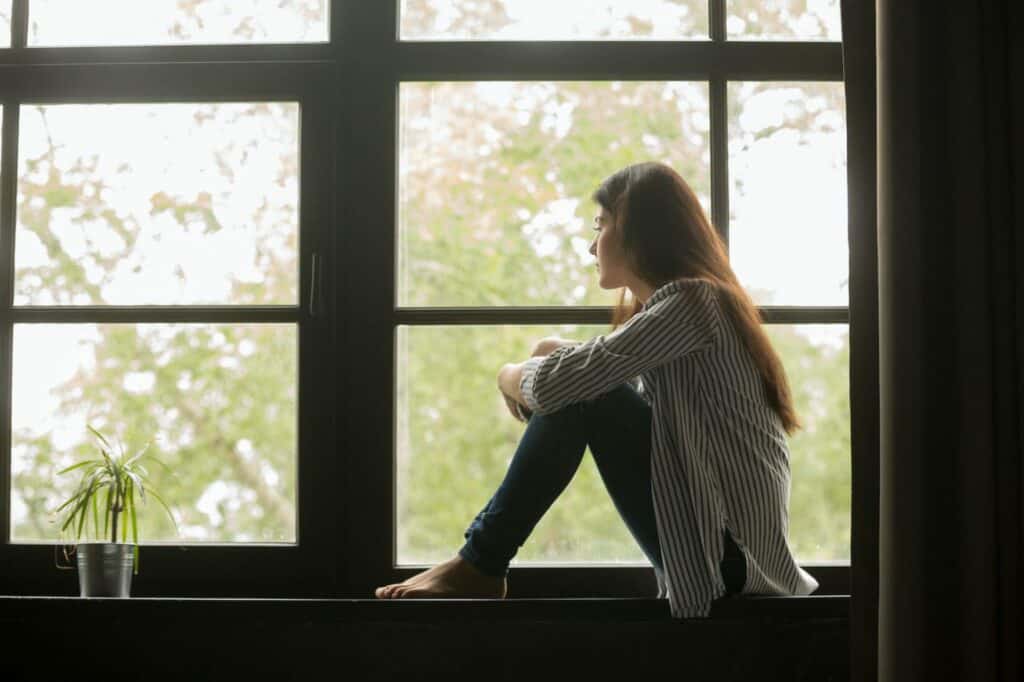With the world coming out of a pandemic, there is a lot of talk about its effects on people’s mental health. There is nothing that can prepare you for being put in isolation. It is not something we have experienced before.
Most of Australia got things under control quickly and opened their economies months ago. But there are still hard border closures between states. And Victorians only just got some relief from the harshest Australian restrictions after a second wave.
Restarting the economy brings a whole new set of mental health challenges for some people across the world. While this is great news, it may not be uncommon for you or someone you know to feel anxious about the future. As restrictions roll back at different rates across the country, people venture out of lockdown. It is a time to spend time with friends and family and discover a ‘new’ normal. And a new normal is really about change. Your life has probably changed many times over the years so treat it in the same way. Look at it as a time of new opportunities.
Regardless, long periods of lockdown leave its toll on some. Not everyone will easily cope with a return to the world. The thought of returning to work and going about daily life can provoke social anxiety. Feelings of intense anxiety that can affect your mental health.
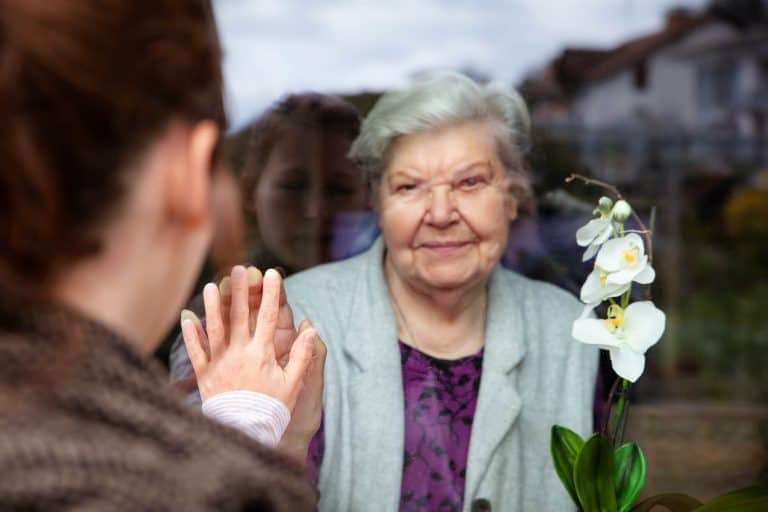
Effect of social distancing
The Australian National University studied a group of adults at the end of March not long after the lockdown and businesses closures to discover the effect on their mental health. The study found the fear of exposure to COVID-19 had little impact. It was the restrictions and disruption to daily life that had a greater impact. But there were positives. People reported it was good spending more time with family.
How do you feel about reconnecting with the outside world? Do any of the following cause overly anxious feelings?
Social anxiety causes
Do you experience anxiety in a lot of situations? Then you are not alone. A lot of people struggle with social anxiety in some way right now. But the triggers are different for everyone. Some of the common triggers include:
- Speaking in public.
- Someone watching over your shoulder as you work.
- Asking someone out or dating.
- Meeting new people and trying to make small talk.
- Someone teasing or criticising you.
- Ending up centre of attention.
- Needing to talk with authority figures such as your boss.
- Having your say in meetings.
- Making phone calls.
- Drinking or eating in public.
- Going to social events and parties.
How do your triggers make you feel? Do they stop you doing the things you want to do? Or do you overcome them and face your fears.
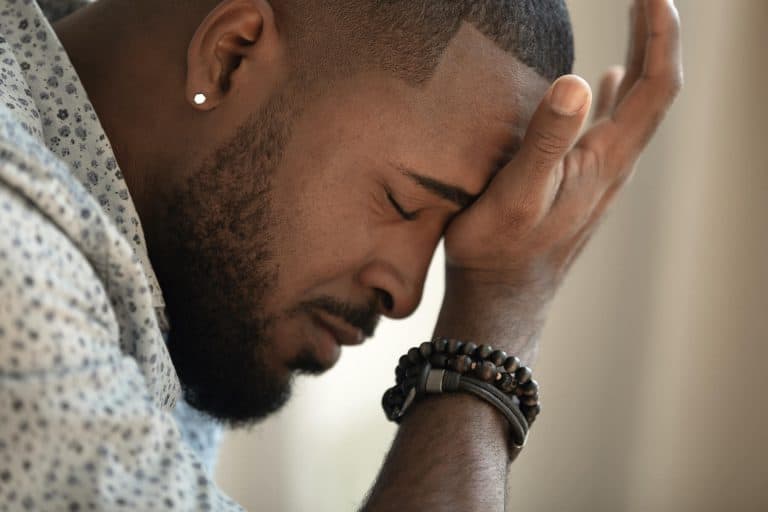
Signs of social anxiety
Occasionally feeling nervous about social interaction is normal. It does not mean you have social anxiety. A lot of people feel this way but it does not get in the way of their everyday lives. Social anxiety is extremely distressing and can interfere with your life. For example, it is normal to have fears about going to a social event but this should not prevent you from attending.
The pandemic created whole new sources of stress for many people, such as:
- Additional worrying about the health and safety of friends, colleagues and family.
- Feeling lonely and isolated.
- Putting a strain on financial resources.
- Worrying about access to food and household supplies.
Here are some emotional, behavioural and physical signs of social anxiety.
Emotional signs
You may have social anxiety if you:
- Become overly anxious and self-conscious in normal daily social situations such as going to work.
- Worry about people noticing how anxious you are.
- Have an extreme fear of strangers judging or watching you.
- Fear you will end up humiliating or embarrassing yourself.
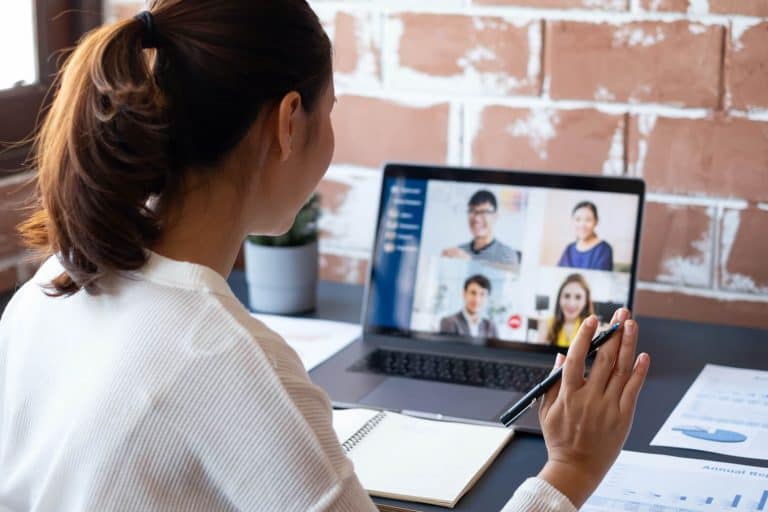
Behavioural signs
Behavioural signs of social anxiety include:
- Having a drink to calm your nerves before going out.
- Never going anywhere alone. You always need to take someone with you.
- Actually avoiding social situations. You may worry so much that you do not go at all. Anxiety is disrupting different areas of your life when this occurs.
- Answering questions with a minimal amount of information.
- Staying in the background so people do not notice you or to avoid embarrassment.
- Avoiding eye contact.
Physical signs
Social anxiety physical symptoms can include:
- Nausea and an upset stomach.
- Being short of breath.
- Dizziness and feeling faint.
- Tightness in the chest or a racing heart.
- Going red and blushing.
- Sweating uncontrollably or having hot flushes.
These physical symptoms can heighten social anxiety. They may make you worry more about what others think about your behaviour.
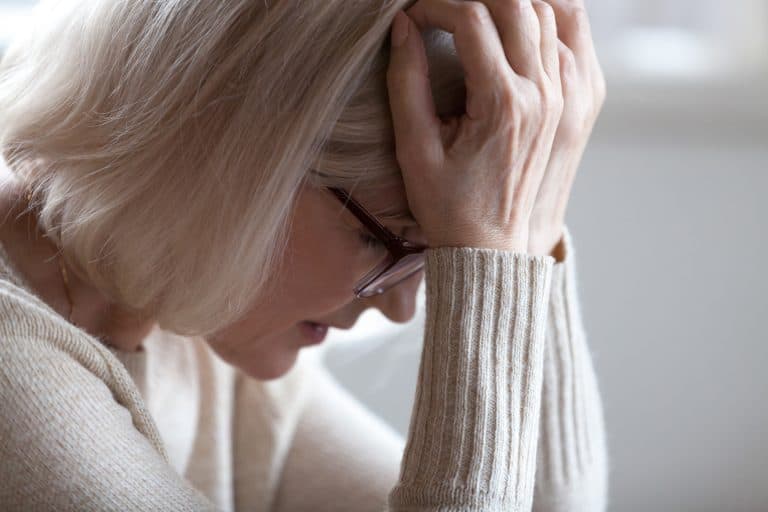
Tips to help you to reconnect with the world
It is a shock to the system going from a highly social life into immediate social isolation. This can cause even outgoing people to develop social anxiety even for a short while.
As your world opens up more to social situations, the following may ease your anxiety.
Picture it in your head
When worried about a particular social situation, picture it in your head. Play it out. Even role play it with someone you trust. For example, you are meeting a couple of friends for coffee. Imagine what you will say when you see them. How are you going to react? You cannot hug each other so find new ways of greeting friends and loved ones. Plan your coffee meetup ahead of time. Do not worry. You will all soon adapt to new ways. And remember, everyone has gone through lockdown and can be experiencing similar anxiety.
Slowly reconnect
Do not rush it. Slowly reconnect with the world. This will help you as you no longer need to avoid certain social situations. You do not have to leap straight back into the situations you fear. Start by meeting up with friends and family; with the people you trust to be honest and open with you. This will show how your anxiety disappears when you face your fears. As you feel stronger, vary your exposure to social situations.
When you are not ready to meet up in person, organise to call someone every day for a week. Once you feel comfortable over the phone or video chat, set up a group call. And move forward from there.
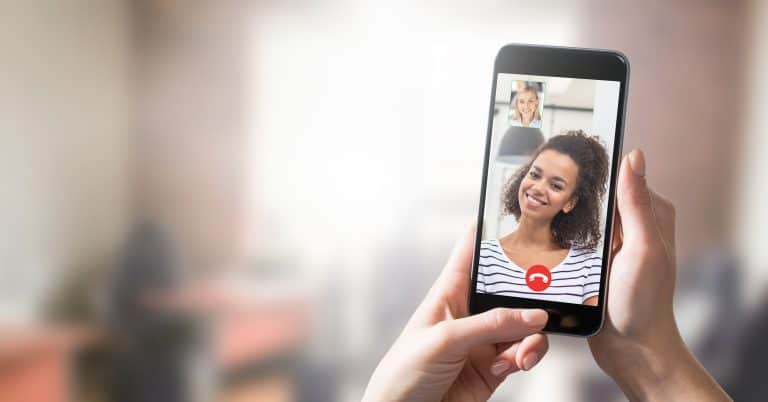
Look after yourself
Look after yourself. Prioritise your physical health. Learn to manage the symptoms of anxiety. Write them down in a journal and talk about your fears to the people you trust. Practice mindfulness and learn breathing techniques. These will have a positive effect. Start by downloading my mindfulness audio and:
- Take some deep breaths. Count slowly to three as you inhale deep from within your diaphragm. Hold for a count of five and slowly exhale on a count of five.
- Imagine the stress and worry flowing out each time you exhale.
- As you breathe, relax the muscles in your body. Start with your toes and work up to the top of your head. Tense the muscles in each area and then release the tension. Repeat until you feel completely relaxed.
Distract yourself
When anxiety bubbles up inside, distract yourself by:
- Remembering something that makes you feel good. Immerse yourself in the details. Recall how you felt at that moment in time.
- Recognising negative thoughts and feelings do not helping the situation. Play your favourite music, watch a movie or read a book to distract yourself.
Put your thoughts off
Recognise the signs of anxiety. Acknowledge them but delay thinking about what makes you anxious until later. You have other things to achieve in that moment. Set aside some time later to think about them. And set a time limit. Say 10 to 15 minutes. This way you can control how negative thoughts affect you throughout the day.
Challenge the negative self-talk
Instead of letting negative self-talk take over, look at the facts behind the thoughts and assumptions you make. Change thinking “I cannot do it” into thinking “Yes. I can even if it is just for a few minutes”. Or when you think “everyone hates me think“ change it to “they have never done anything but treat well”.
There is no right or wrong way
There is no right or wrong way to recover from social isolation. Start socialising in situations that make you feel comfortable. Choose who you meet up with in person carefully. It is good to hear different perspectives and real-life experiences. And can help you feel more confident moving forward at your own pace.
Other practical strategies to chase anxiety away
Other practical strategies to help manage any anxiety include:
- Seek professional support if you need it.
- Accept feeling confused, scared, angry, sad or stressed is normal for a while after social isolation.
- Avoid the use of smoking, drugs and alcohol to help you deal with how you feel. It is more productive to remain healthy. Get some exercise, and sleep and eat well.
- Limit your exposure to too many sources of information. Choose a couple you trust and ignore the rest. This will shut down the continuous stream of negative news.
Things will get better. Draw on skills that helped you through other tough times. Try to approach life’s changes with a positive outlook. This is good for your soul and mental health. Yes there will be challenges. But consider how good you will feel after you meet each one successfully.
We are here to help
There is no escape from social anxiety for some. Long periods of lockdown and social isolation may affect even the strongest people for a short time. It can cause severe anxiety and other mental health conditions. While you may know in theory the steps to take, it can be hard to find the motivation. And you may feel alone as you do not know how others feel. But it is important to make an effort to reach out.
If you are struggling, consider reaching out to our professionals. When you are not coping, contact us to discover how we aim to help get your life back on track. But if you reach a crisis point, call us immediately. We are here to help support you through to the other side. We may help you deal with things quickly.
We can work with you over the phone, via Skype or in our Spas. Book in today for my Emotional Empowerment Program. I have an introductory offer for just $79 so you may start taking back control of your life. We aim to help you cope with any mental health challenges. Our facilitators may alleviate the effects of social anxiety so you may look forward to reconnecting with the world.
Let me help alleviate the effects of mental health issues
My Emotional Empowerment Program has helped many people like you for more than a decade. We may help you deal with the social anxiety challenges after social isolation. My aim is to help you replace anxiety with a new hope for the future. A future filled with happiness, peace and contentment in weeks not years. Listen to what Caitlin has to say about my program after only a few sessions.
Give the Blissiree ™ a try by booking a free 25-minute telehealth consultation. Or discover a seamless way to rejuvenate your emotional and mental health by becoming a member. It will give you access to more than 75 audio programs that can help your child and you to live inspired and improve mental wellbeing.


